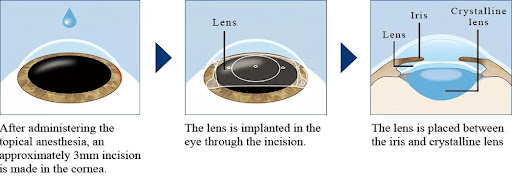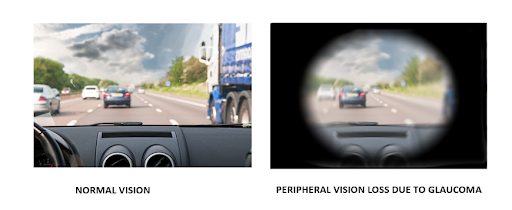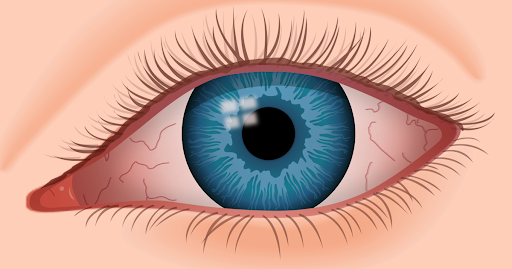Convergence Insufficiency (CI) is an eye coordination problem that affects binocular vision—the ability of both eyes to work together seamlessly. CI happens when the eyes drift inward when performing close or near work, resulting in double or blurred vision.
In the US alone, there is an estimated 2% to 13% of individuals with convergence insufficiency, how much more in the rest of the world. Untreated CI may impose a range of challenges and discomfort, affecting daily activities, academic and professional pursuits, and overall quality of life. If you are suffering from this eye condition, do not fret. Eyeonce Eye Clinic’s professional eye doctors have the right experiences and top-notch equipment to help treat convergence insufficiency.
Causes and Risk Factors
The causes of convergence insufficiency are believed to involve a combination of factors related to eye-muscle coordination and neurological processes. However, certain risk factors may trigger the development of CI, such as:
- Eye muscle coordination – CI occurs when the muscles turning the eyes inward fail to coordinate correctly. This misalignment disrupts the eye’s ability to focus on nearby objects, leading to symptoms like double vision and eye strain.
- Neurological factors – Disruptions in the neurological processes that control eye coordination can contribute to convergence insufficiency. Our brain plays a vital role in coordinating eye movements and processing visual information from both eyes.
- Binocular vision development – Any issues with the development of binocular vision may cause convergence insufficiency to arise.
Additionally, here are some of the causes and risk factors associated with CI:
- Age – During childhood and adolescence, the visual system actively develops, making it more susceptible to eye coordination issues.
- Genetics – If a family member has experienced convergence insufficiency, the risk of developing the condition may be higher.
- Pre Existing conditions – Certain conditions, such as strabismus and accommodative disorders, can affect eye focus and increase the risk of developing convergence insufficiency.
- Repetitive close-up work – Prolonged engagement in near work, such as reading, using digital devices, or doing detailed crafts, may strain the eye muscles and potentially contribute to convergence insufficiency.
- Medical history – People with previous history of head trauma, brain injuries, or neurological disorders are more susceptible to convergence insufficiency due to potential impacts on the visual processing pathways.
- Systemic disorders – Certain systemic health conditions like thyroid dysfunctions may indirectly affect eye-muscle coordination and contribute to developing convergence insufficiency.
- Visual stress – Excessive screen time, poor lighting conditions, and excessive near work can strain eye-muscle coordination and lead to CI.
- Untreated refractive errors – Individuals with untreated refractive errors such as nearsightedness, farsightedness, or astigmatism may have difficulties with binocular vision, resulting in convergence insufficiency.
While being aware of the different causes and risk factors of CI is essential, it is more important to consult a trusted eye center such as Eyeonce Eye Clinic. Our eye care professionals, Dr. Paik Dong Won and Dr. Jung Sae Rom can provide personalized treatment options that best address your condition.
Symptoms
The following symptoms are commonly associated with convergence insufficiency:
- Eyestrain and fatigue
- Double vision (Diplopia)
- Difficulty maintaining focus
- Words appear to move or jump
- Headaches
- Blurred vision
- Short attention span
- Motion sickness/vertigo
- Excessive squinting, rubbing, closing, or covering an eye
- Frequent loss of place
- Trouble remembering what was read
- Dizziness
- Reduced reading speed
If you experience any combination of these symptoms, book an appointment with a trusted eye doctor like Dr. Paik Dong Won or Dr. Jung Sae Rom. They are well-known for providing patients with a comprehensive eye examination, accurate diagnosis, and appropriate treatment. Remember that timely intervention is vital to help alleviate these symptoms and improve your condition.
Diagnosis and Treatment
The evaluation aims to assess eye coordination, visual acuity, and other factors related to binocular vision. The diagnosis and treatment typically take the following steps:
Diagnosis
- Patient history – Our eye doctors start by discussing the patient’s medical history and any symptoms they are experiencing by asking questions about discomfort, double vision, headaches, and difficulties with near tasks.
- Visual acuity testing – Visual acuity testing helps determine if refractive errors contribute to convergence insufficiency. Standard eye charts assess the patient’s ability to see clearly at different distances.
- Cover test – The cover test is conducted to evaluate eye alignment and detect any deviations in eye positioning, which could indicate convergence insufficiency or other binocular vision issues.
- Near point of convergence test – In individuals with convergence insufficiency, the near point of convergence may be farther away than average. This test must measure the close point at which eyes can focus without double vision.
- Convergence insufficiency symptom survey – This is done by asking patients to complete a survey that assesses the presence and severity of convergence insufficiency symptoms. It provides valuable information for diagnosis and treatment planning.
- Binocular vision assessment – Our eye doctors evaluate how well the eyes work together by observing how they move and converge during different visual tasks.
Treatment
- Vision therapy – A structured program of exercise and activities designed to improve eye coordination and convergence abilities.
- Prism glasses – These are specialized glasses that use primed lenses to redirect light and help the eyes converge more easily.
- Eye exercises – Eye movement exercise retrains your nerves and helps improve your eyes’ ability to move inward by focusing on objects at different distances.
Remember that the choice of treatment depends on the severity of the condition and the individual’s specific needs. If you suspect you have CI, seeking an evaluation at Eyeonce Eye Clinic can provide you with a comprehensive diagnosis and customized treatment plan.
Why choose Eyeonce Eye Clinic Gangnam for convergence insufficiency treatment?
Utmost Patient Care
Our eye care professionals and staff ensure to give you your money’s worth. We guarantee you receive the best medication possible and assure you that you are guided and understood, making you feel comfortable and confident at every step.
Comprehensive Consultation
Eyeonce Eye Clinic offers comprehensive eye examinations to evaluate your condition and determine the best convergence insufficiency treatment. Our ophthalmologists take their time to cater to your questions and address your concerns, ensuring you make an informed decision about our vision correction options.
Expert Eye Doctors
Our ophthalmologists, Head Director Dr. Paik Dong Won and Medical Director Dr. Jung Sae Rom, are highly knowledgeable and adept in treating convergence insufficiency. They always use the latest techniques and technologies to ensure optimal results.
Frequently Asked Questions (FAQs)
In most cases, CI may be permanently cured after eye exercises to strengthen their convergence. However, convergence insufficiency may come back after an illness, lack of sleep, or need to do more near work.
Surgery is not a typical treatment for convergence insufficiency. Vision therapy and other non-invasive methods are usually explored first.
CI itself is unlikely to cause permanent vision loss. However, untreated symptoms can impact the quality of life.
Conclusion
Convergence insufficiency can pose challenges, but with the proper diagnosis and treatment from trusted eye doctors like Dr. Paik Dong Won and Dr. Jung Sae Rom from Eyeonce Eye Clinic, you can comfortably regain your vision’s efficiency. Book an appointment with them today to experience Seoul’s leading eye clinic’s top-notch services.



